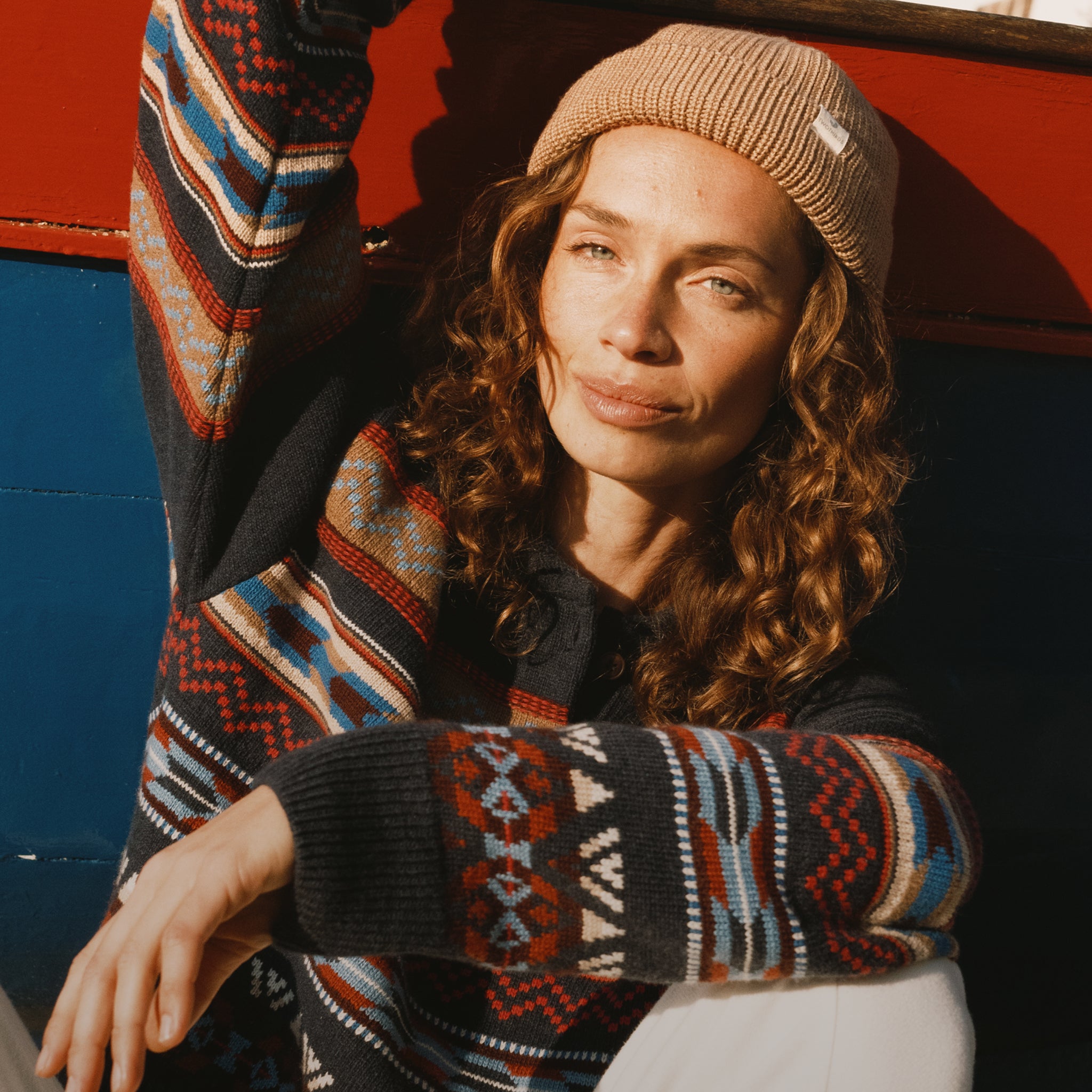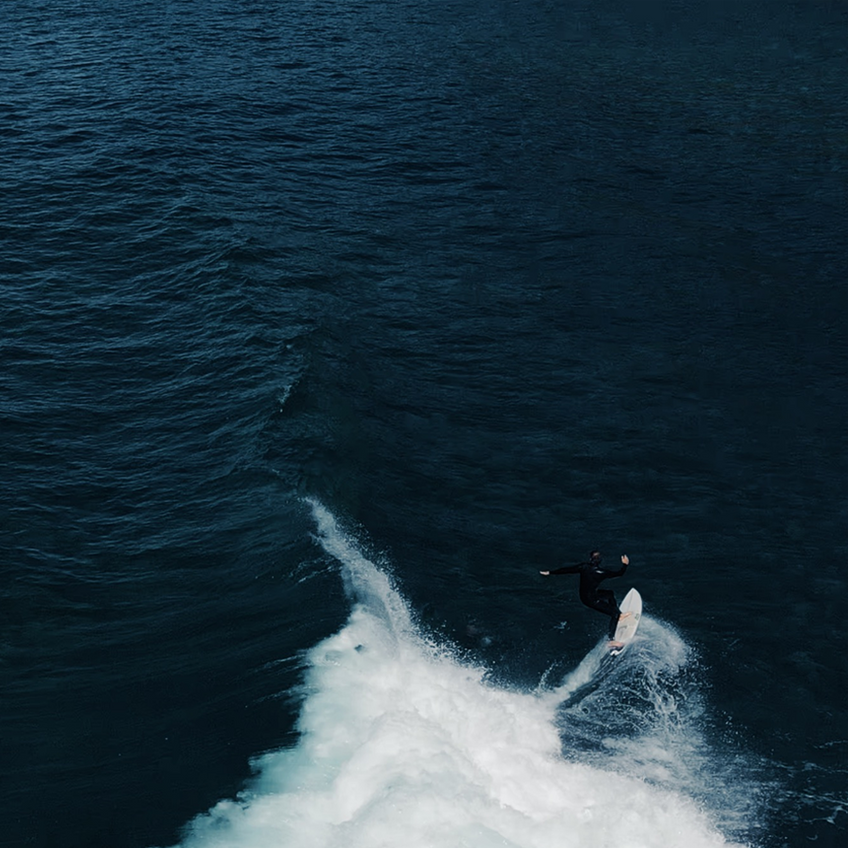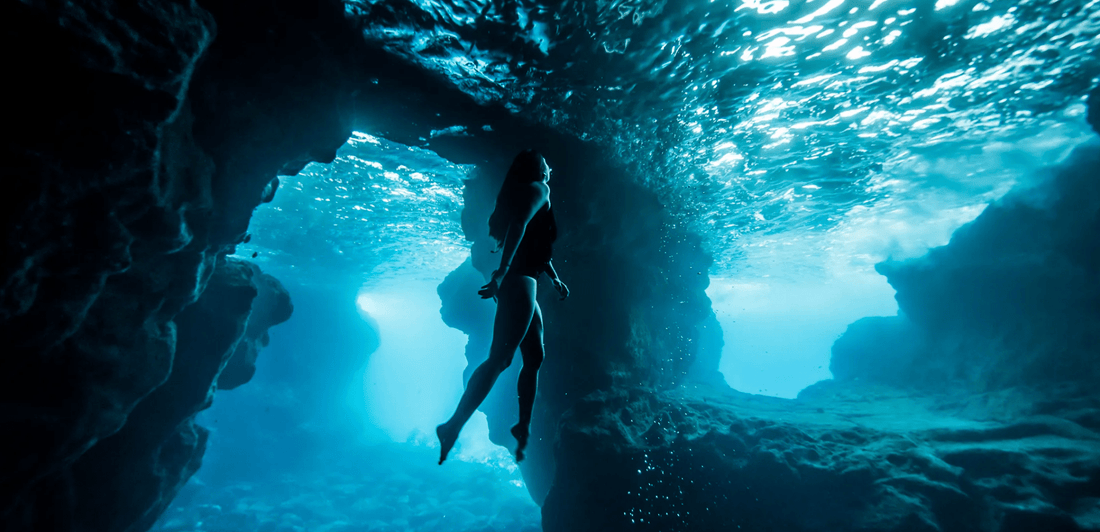They say that all life originated in the sea. If that’s true then the ocean was our world’s original mother. Perhaps that’s why Women’s Day is so special for everyone at TWOTHIRDS, especially when you consider that 75% of our crew are women.
Somewhere along the way, modern societies – driven by enlightenment thinking which promoted the idea that humans were superior to nature – lost touch with the waters that cover two-thirds of the world’s surface. As a result, coral reefs are bleaching, ocean dead zones are expanding, and the threat of ocean acidification looms on a stormy horizon.
“What the ocean and nature need most for Women’s Day 2024 is a woman’s touch.”
All sound a bit too “doom and gloom”? What the ocean and nature need most for Women’s Day 2024 is a woman’s touch. We’ve picked out five incredible women who have dedicated their lives to environmental conservation. Let's celebrate them, and use their stories as inspiration to redouble our efforts to care for what we love most: our ocean.
Nonhle Mbuthuma - Fighting Big Oil
Back in 2022 a court judgement in South Africa sent shockwaves through the environmental scene. A group of local indigenous activists won a verdict that forced oil company Shell to cease using seismic waves to explore for oil and gas in the Indian Ocean.
The ruling was important because it set a blueprint for how local indigenous communities could fight back against fossil fuel companies, who were putting local marine life at risk, not to mention exacerbating the climate crisis. Also notable was that this was a women-led campaign, showing that women are incredible community galvanisers who in many instances are more effective than multinational NGOs, organisations like the UN, and politicians.
“It’s not only a moral imperative that global governments finally recognise and respect our right to self-determination, but it is also one of the most urgent and effective climate strategies—it’s no coincidence that we are the guardians of over 80% of our planet’s biodiversity.”
- Nonhle Mbuthuma and Nemonte Nenquimo
When you consider that many studies have shown indigenous people to be by far the best custodians of precious natural habitats, it seems crazy that they receive less than 1% of all climate funding. No stranger to achieving great things with little or no funding, here’s Mbuthuma fighting another threat to her peoples’ land, open cast mining:
Bethany Hamilton - Pro Surfer
“Even at 8 years old, the ocean wasn’t easier on me than it was on my peers or my brothers and I loved that. It’s super humbling, but also so energising and exciting.”
- Bethany Hamilton
Bethany Hamilton’s surf style is instantly recognisable. She rides some of the biggest and most technical waves in the world with just one arm, the other claimed by a shark attack in 2003.
Such a brutal attack would have put most people off the ocean for life, but not Hamilton, who instead went about turning herself into an icon in the surf world and the disability sports community at large. TWOTHIRDS has long been involved with disability organisations that specialise in getting people of all physical and mental abilities in the water, so Hamilton’s story is one we follow closely.

Having once competed at the highest levels of pro surfing, against able bodied athletes, Hamilton now dedicates most of her time to her Beautifully Flawed Foundation, which provides support to amputees.
Haenyeo of Jeju - Korea’s Ocean Women
Don’t believe in mermaids? Pay a visit to Jeju Island in South Korea and you might just change your mind. Lined up on the cliffs and beaches are the Haenyeo, a community of women aged in their 50s and 60s (younger women now pursue different careers), who for centuries have gone free diving to find shellfish with which to feed their families.
Theirs is a rich tradition that has been alive since the 1600s. Over the centuries they have even developed their very own breathing technique, named Sumbisori. In a country blighted by stringent patriarchy, the Haenyeo have turned Jeju Island into a unique oasis of matriarchy, their status greatly elevated thanks to their diving prowess.

They are mentioned in this piece because they are now on the frontline of the fight against climate change and ocean habitat breakdown. The precious sea waters that lap Jeju’s shores are becoming badly polluted, leading to many of the Haenyeo joining clean-up operations to rid the sea of plastic. Each time these women don their wetsuits and plunge into the sea it is an act of deep love and appreciation for a longstanding bond that exists between ocean and womankind; a subtler kind of protest and resistance.
“The Haenyeo’s future is bound with the environment—the same global climate change issues that everyone around the world is facing,”
- Paik Sunoo, author
Greta Thunberg - Voice of a Generation

Okay, so choosing Greta might be seen as a lazy choice, but hear us out. Who in history has had so much impact on global policy agendas before the age of 21? The answer is, no one. What started out as an eco-conscious kid striking at school quickly ballooned into Greta becoming the figurehead for younger generations, whose futures are certain to be negatively impacted by climate change.
“I have learned you are never too small to make a difference.”
- Greta Thunberg
What with all the media attention, adulation, and haters, it would have been easy for Greta to sell out; join the mainstream consensus and watch the money roll in. Instead she’s remained true to herself and her steadfast values, something that has only been proven further by her unequivocal support for those currently suffering human rights injustices. Moreover, her connection to the ocean is undeniable: she sails to conferences and events whenever possible and was recently arrested for protesting against fossil fuel companies outside their UK offices.
Jess Hernandez - Indigenous Science
In sustainability circles it is often said that we should follow the science, but what if the science we’re following is shaped by vested interests and incentivised to maintain the status quo? What if the science and ancestral knowledge that exists in indigenous communities were a better guide for how modern societies can reconnect and coexist with nature? That’s the proposition put forward by Jessica Hernandez.

In her seminal book on the subject, Fresh Banana Leaves, she argues that some western ideas of conservation and habitat regeneration are not fit for purpose, advocating instead for techniques that have been fine-tuned for millenia by indigenous peoples. We think that academics like Hernandez are so important for ocean communities like the one we’ve built at TWOTHIRDS, so we can all learn together how best to live in harmony with what we love most: our ocean.









